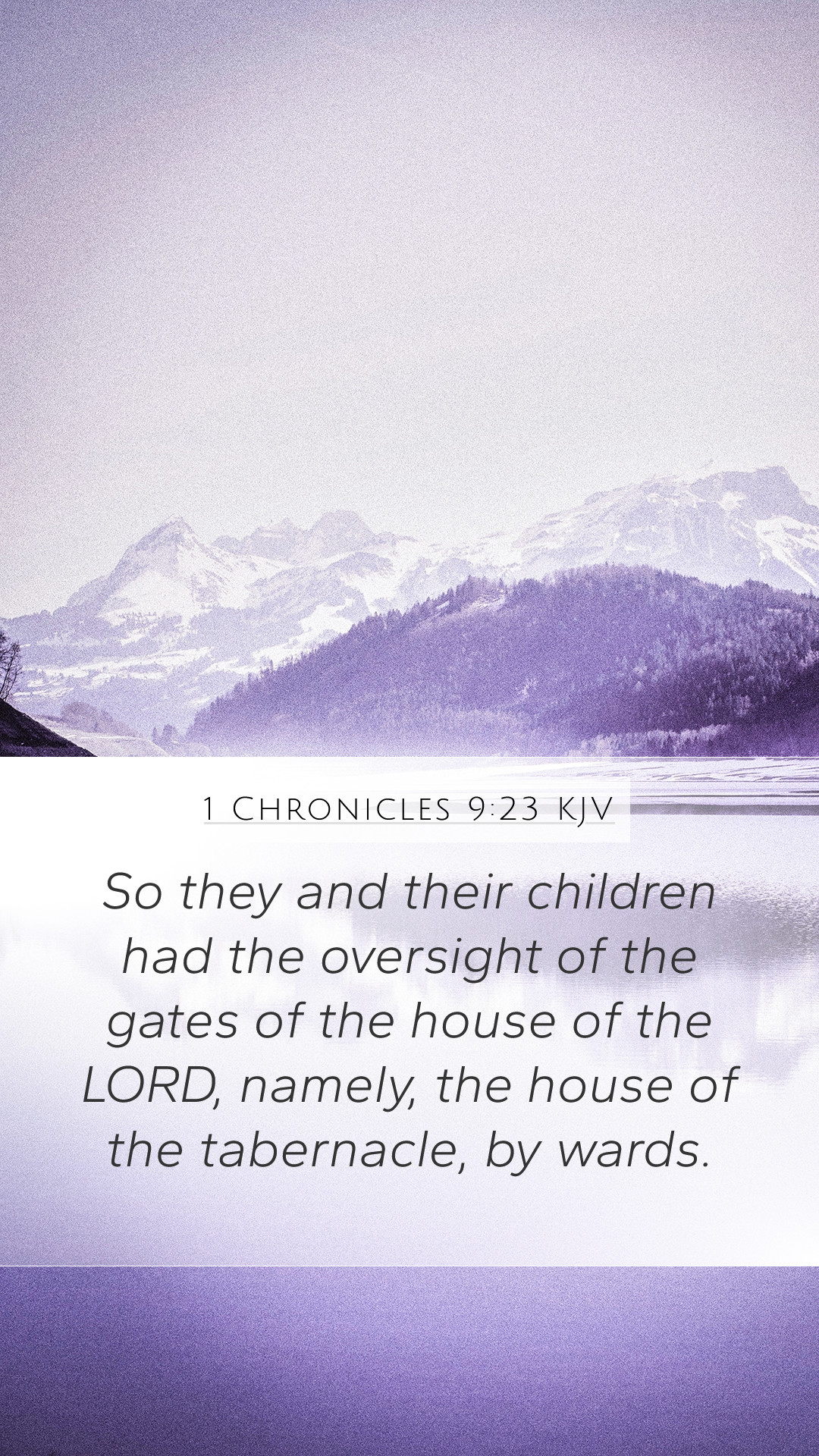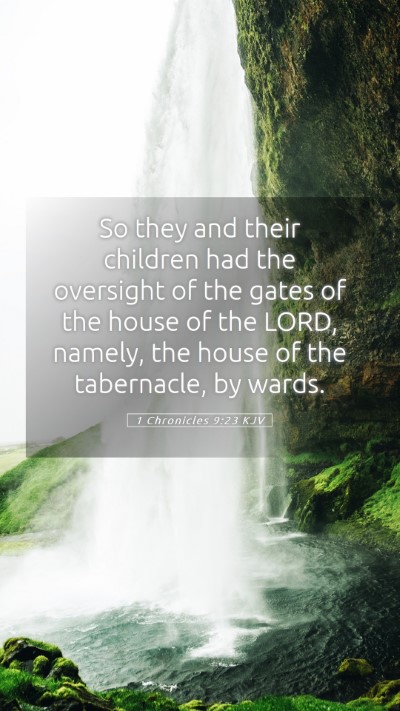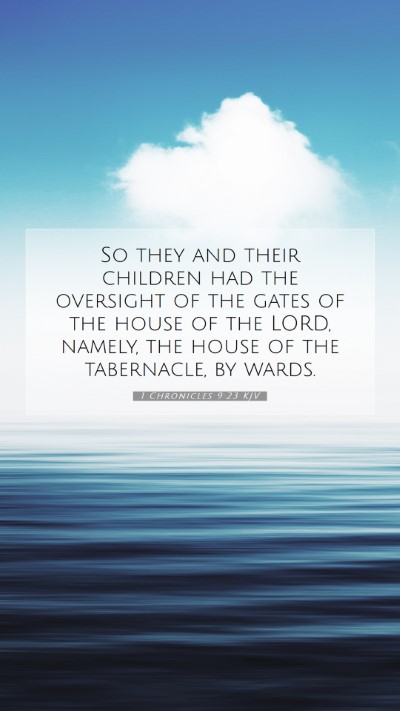Understanding 1 Chronicles 9:23
The verse 1 Chronicles 9:23 reads: "So they and their children had the oversight of the gates of the house of the Lord, namely, the house of the tabernacle, by wards." This scripture is essential in understanding the responsibilities of the gatekeepers in the temple and reflects broader themes of service, duty, and the preservation of worship in the Old Testament.
Overview of the Verse
This verse highlights the role of the gatekeepers in the temple, emphasizing their responsibilities and the significance of maintaining order and sanctity in worship. Those who were assigned to guard the gates were not just mere sentinels; they played a critical role in upholding the holy standards of the temple.
Insights from Public Domain Commentaries
-
Matthew Henry's Commentary:
Henry emphasizes the importance of the gatekeepers in the broader context of God’s house. He notes that those entrusted with such responsibilities were not just fulfilling a duty, but were also ensuring that worship could proceed without disruption and that holiness was maintained. Their families were involved in this role, indicating a continuity of service through generations.
-
Albert Barnes' Notes:
Barnes provides context regarding the placement and significance of the gates of the tabernacle and later the temple, indicating that these gatekeepers had specific duties. Each gate's oversight had to do with managing who could enter and when, thus preserving the sanctity of worship space. Barnes cites the importance of orderliness in the temple regimen as reflective of God's desire for an organized worship system.
-
Adam Clarke's Commentary:
Clarke provides insight into the passage by discussing the historical and ritualistic underpinnings of the roles assigned to the gatekeepers. He reflects on how these roles were vital in the ancient worship practices of Israel, indicating a structured and protective setting around divine worship. Clarke acknowledges that this passage reveals much about the Israelite's dedication to their religious responsibilities.
Key Themes and Applications
The primary themes reflected in 1 Chronicles 9:23 include:
- Service in Worship: The role of the gatekeepers signifies the importance of every individual's contribution towards maintaining worship.
- Generational Duty: The mention of their children indicates a legacy of service that was expected among the people of God, thus stressing the value of passing down responsibilities.
- Spiritual Oversight: The gatekeepers' duties symbolize spiritual vigilance and the need for protection over sacred matters.
- Order and Holiness: The structure around who could enter the temple reflects the divine order and holiness embedded within worship practices.
Cross-References
To deepen your understanding of 1 Chronicles 9:23, consider exploring the following cross-references:
- Exodus 38:30-31 - Discusses the duty of the Levites and the tabernacle's structure.
- 2 Chronicles 23:19 - Refers to the guarding of the temple gates.
- 1 Chronicles 26:1-19 - Details the assignments and tasks of the gatekeepers in the temple.
- Psalm 84:10 - Expresses the value of serving in the house of the Lord.
- 1 Samuel 3:15 - Highlights the guarding of the sanctuary and the importance of spiritual vigilance.
Conclusion
1 Chronicles 9:23 serves as a reminder of the importance of service within the community of faith, the passing on of responsibilities, and the sacredness of worship spaces. Through studying such scripture, individuals seeking Bible verse meanings, Bible verse interpretations, and understanding Scripture can glean valuable insights into their spiritual practices and duties.


